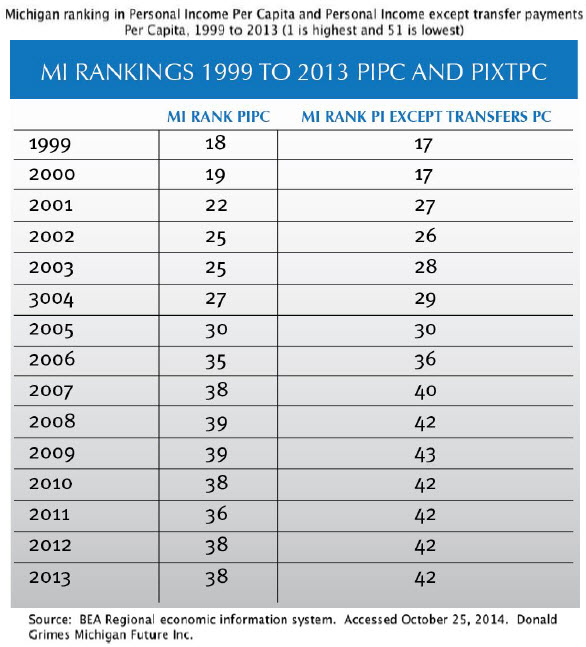The reality is, whether we are willing to admit it or not, Michigan is now one of the country’s poorest states. That is the unambiguous message of the table below. It shows Michigan’s rank among the 50 states plus D.C. The left hand column is per capita income, the right per capita income minus government transfer payments.
Michigan has not bounced back from the so-called lost decade or one state recession. What has happened during the now four year recovery is Michigan has stopped falling. We have stabilized in the high 30s in per capita income and the low 40s in per capita income minus transfer payments.
The only states lower than us in per capita income minus transfer payments are: • Arizona • Idaho • Arkansas • Alabama • New Mexico • South Carolina • Kentucky • West Virginia • Mississippi
The decline has been impervious to which party has been in control in either Lansing or D.C. Michigan’s rapid fall from one of the country’s most prosperous state––a status we enjoyed for most of the 20th Century––to one of its poorest has occurred during a period when both parties have occupied the Governor’s office and Presidency.
The main driver that made us one of the 20th Century’s most prosperous states––lots of high paid auto factory jobs––is gone forever. The path back to prosperity for Michigan starts with all of us learning the lesson that what made us prosperous in the past, won’t in the future.







